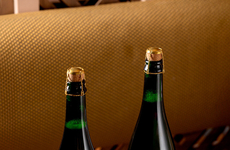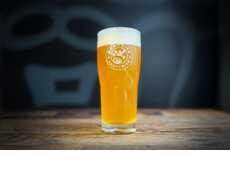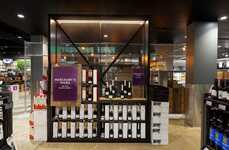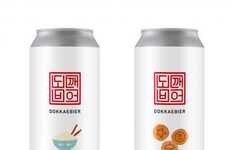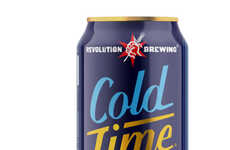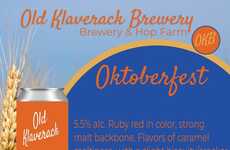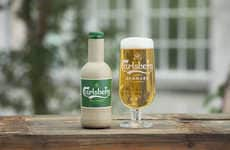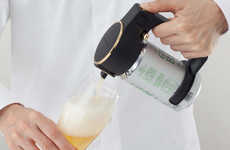
Carlsberg is Launching Cask-Conditioned Beer for Danish Restaurants
Laura McQuarrie — February 6, 2018 — World
References: carlsberggroup
Carlsberg Group is one of the leading multinational breweries in the world, and it is now venturing into new territory by experimenting with cask-conditioned beer. In particular, the brewery has developed high-end beer for a Michelin-starred restaurant in Denmark, appealing to the local gastronomic scene.
For the project, Carlsberg Group worked with a team of researchers from the Nordic Food Lab at the University of Copenhagen’s Department of Food Science. The products to come out of this collaboration between researchers and brewmasters are two cask-conditioned beers: the Jacobsen Chanterelle Lager and Jacobsen Sour Rye.
As Jacobsen Brewmaster Morten Ibsen describes: "The goal was to brew high-end beers from natural ingredients aiming for an ABV of at least 10% to give the beers the best potential for vintage cellaring." Moving forward, the experimental project has the potential to inspire new ways of fermenting raw materials to produce different kinds of food and beverages.
Image Credit: Carlsberg Group
For the project, Carlsberg Group worked with a team of researchers from the Nordic Food Lab at the University of Copenhagen’s Department of Food Science. The products to come out of this collaboration between researchers and brewmasters are two cask-conditioned beers: the Jacobsen Chanterelle Lager and Jacobsen Sour Rye.
As Jacobsen Brewmaster Morten Ibsen describes: "The goal was to brew high-end beers from natural ingredients aiming for an ABV of at least 10% to give the beers the best potential for vintage cellaring." Moving forward, the experimental project has the potential to inspire new ways of fermenting raw materials to produce different kinds of food and beverages.
Image Credit: Carlsberg Group
Trend Themes
1. Cask-conditioned Beer - Exploring the use of cask-conditioning in beer production opens up opportunities for new flavor profiles and brewing techniques.
2. Gastronomic Collaboration - Collaborating with renowned gastronomy experts can lead to the development of unique and high-end food and beverage products.
3. Vintage Cellaring - Exploring vintage cellaring techniques for beer production can create new opportunities for aging and flavor development.
Industry Implications
1. Brewing - The brewing industry can leverage cask-conditioned beer to create innovative and premium offerings for beer enthusiasts.
2. Gastronomy - The gastronomy industry can benefit from collaborating with breweries to develop exclusive beverages that complement their culinary offerings.
3. Food and Beverage - The food and beverage industry can explore the potential of vintage cellaring techniques to create unique flavor experiences for consumers.
0.9
Score
Popularity
Activity
Freshness

